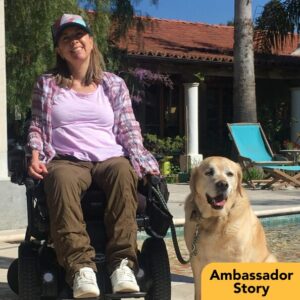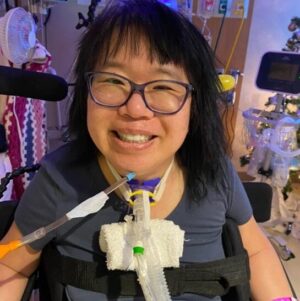Ariel Eduardo Benites is a 40-year-old who is fundraising at helphopelive.org to help with medical bills and other costs of kidney transplantation. We asked Ariel about his diagnosis, the challenges of accepting community support, and what hope means to him.
While we were writing this Blog post, Ariel received the kidney transplant he had been waiting for.
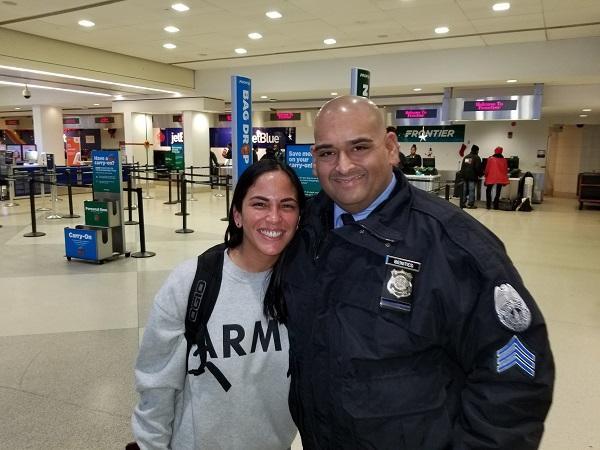
How has your diagnosis impacted your life?
Looking at me, you might never know that I am in end-stage renal failure, have had a stroke, and have spent a week on a ventilator fighting for my life. I was first diagnosed with kidney disease about 10 years ago in the summer of 2010. Within weeks of being diagnosed, I also learned that a transplant might be in my future.
I felt shocked, depressed, angry, bitter, and in total disbelief. When I finally started to tell my family, their reactions were all over the place—some felt sorry for me, some were sad, and some wanted to know how they could help me beat this thing.
Early on, I made the conscious decision that I would not allow my kidney disease to run my life, but rather, that I would run my kidney disease.
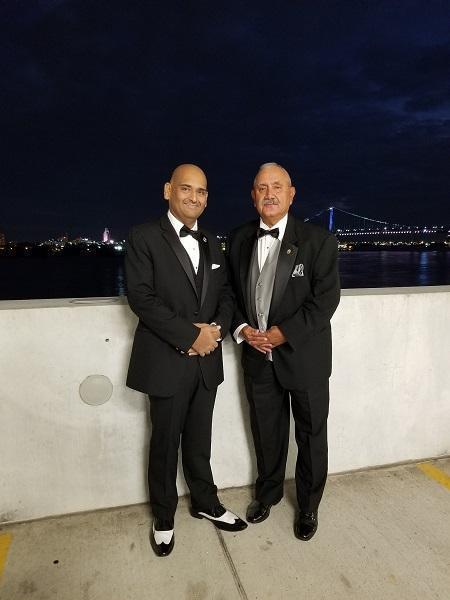
The biggest obstacle in my personal and professional life as I live with kidney disease is my reliance on dialysis. Even simple things are disrupted, such as trying to plan a vacation or even a quick weekend getaway.
How do you view your community?
To me, family and community mean a network that you can turn to for help, day or night—no matter what.
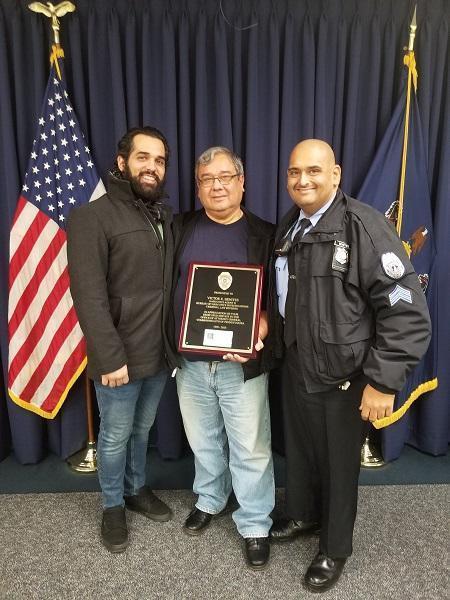
My father and his parents came to the United States from Peru, and my mother’s parents are from Puerto Rico. My father is a retired police officer with 20 years of service in Philadelphia and 20 for the Pennsylvania Office of the Attorney General. My mother is a retired probation/parole officer with 36 years of professional service. I have a number of aunts, uncles, and cousins, one younger brother, and I also an adopted younger sister and older brother.
My fiancée, Lisa, who was my girlfriend at the time of my diagnosis, is a MICU nurse who teaches at a Philadelphia hospital. She reached out to her colleagues to find a doctor who specialized in treating my specific type of kidney disease. From Day One, that doctor has been beside me and on top of things and has walked me through every phase of this journey.
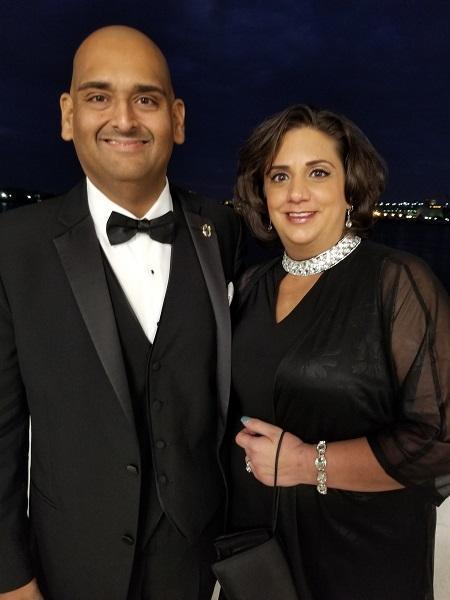
Was it difficult for you to ask for community support?
I have never been someone who wants pity. I am driven and independent, and always have been.
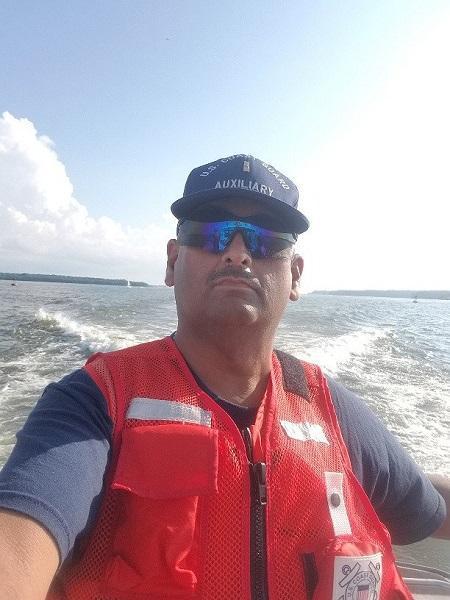
I got my first job at the age of 13 as a jewelers apprentice. Today, I am a full-time policesergeant for the School District of Philadelphia Police Department. I also work part-time in Emergency Medical Services for the City of Sea Isle, New Jersey, and I am an adjunct professor at Chestnut Hill College. My favorite thing about my police and EMS jobs is that nothing is ever routine. They give me a front-row seat to the greatest show on Earth, and life in its rawest form.
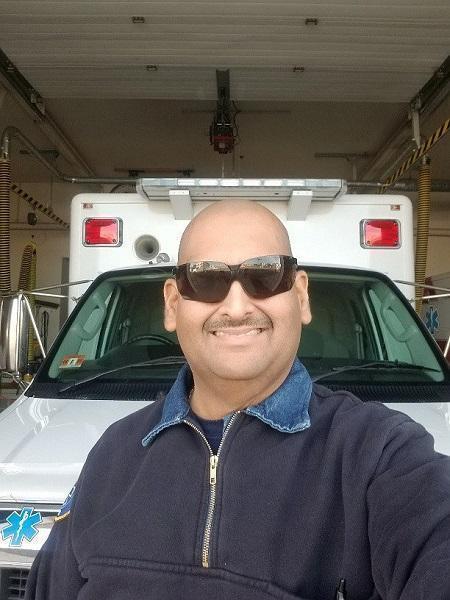
I would consider my greatest accomplishments to be my higher education pursuits, achieving two bachelor’s degrees and a master’s degree. It was my second attempt at college—the first time around, I didn’t take it seriously, and I just wasted my parents’ money. It’s funny how your priorities change when it’s your own money you’re spending! I had to withdraw from a semester of graduate school due to complications related to my kidney disease, but I still obtained a master’s in 2016.
My fiancée and Iooked at the potential wait time for a kidney transplant and decided it would be beneficial to get listed at multiple transplant hospitals. In light of all I knew I could accomplish with my own independence and drive, the decision to turn to Help Hope Live was not an easy one for me.
My pride doesn’t allow me to ask for help, but after discussing things with Lisa, we agreed that we would need assistance covering the costs associated with traveling to and from transplant hospitals, securing lodging, and medication.
What does hope mean to you?
To me, hope is simple: it means the possibility of getting a new kidney is in the near future.
That hope came true for me on July 12, 2020.
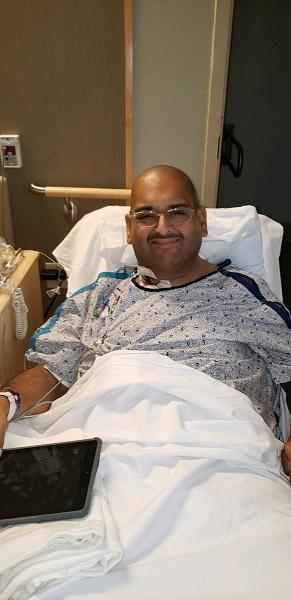
The new kidney started working right away. The process has been so surreal—it hasn’t fully hit me yet.
I must admit that I feel a little guilty knowing that someone passing away gave me my new lease on life. I will be forever grateful to my donor’s family, and I will keep them in my prayers for as long as I live.
I will make it a point to honor my donor, whomever he or she is, every chance I get.
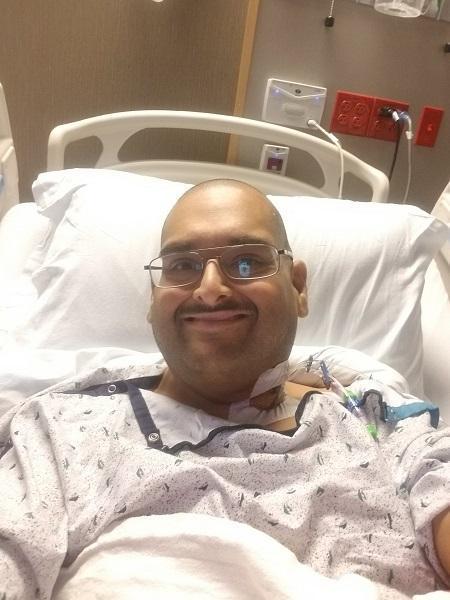
Ariel says if his life were a movie, he’d like to be an action movie, and he’d choose Liam Neeson to play him. You can follow his journey with the gift of life on his Campaign Page.
Written by Emily Progin
